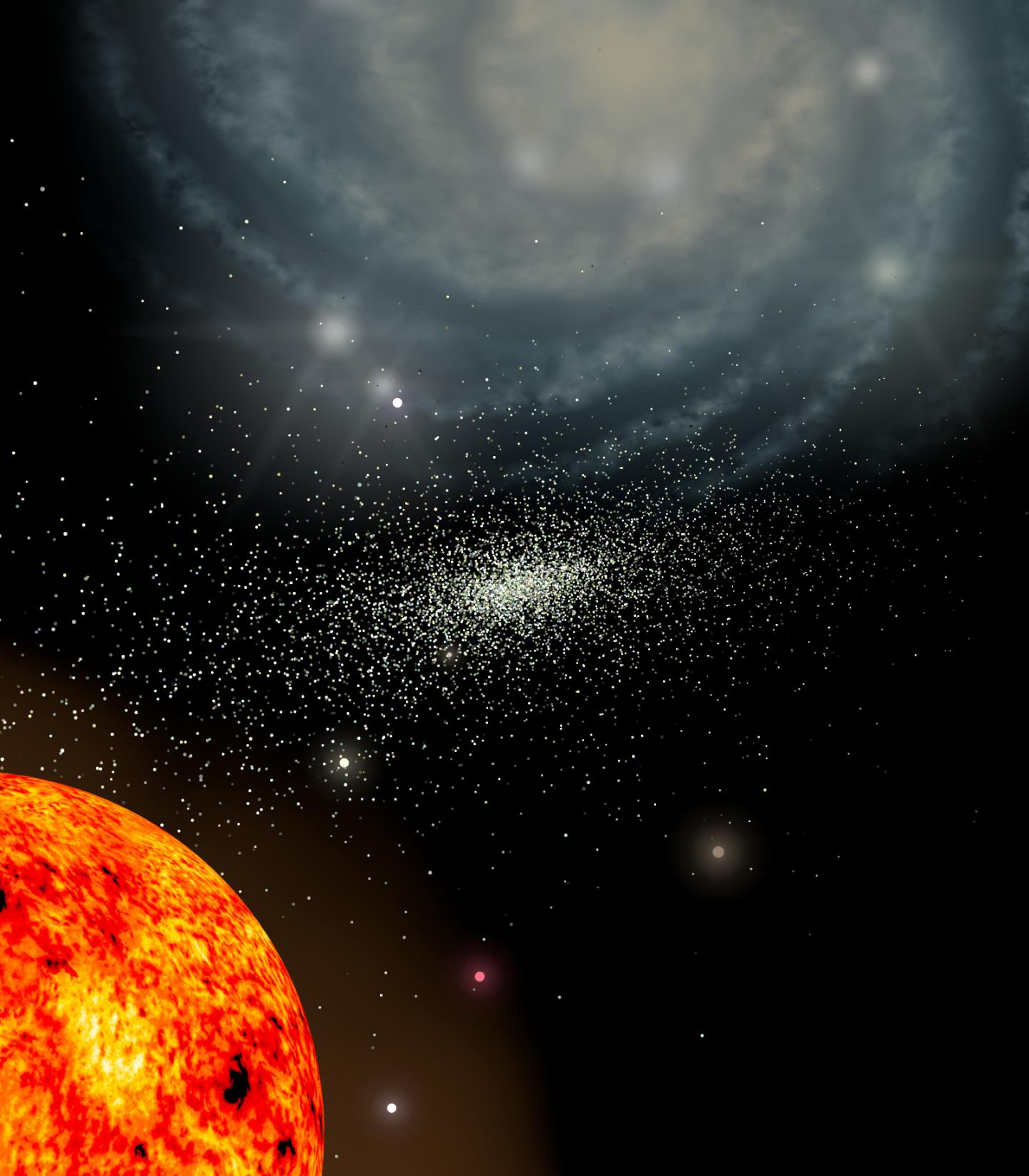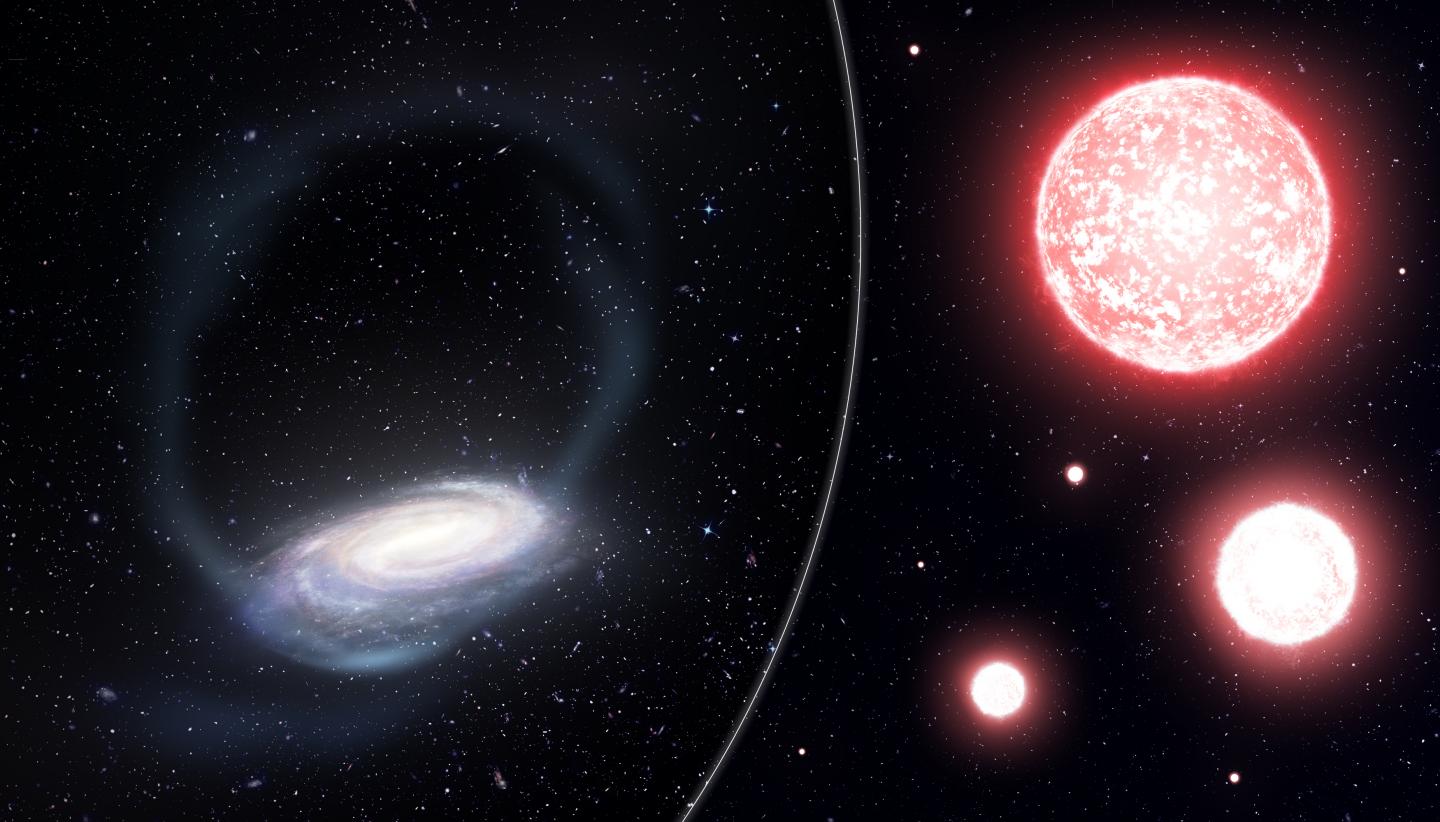The last of its kind?
Stellar streams consist of groups of stars moving in orbit together. They are usually remnants of small galaxies that were absorbed by larger galaxies or former star clusters. The Phoenix stream discovered four years ago is the latter. It was, as researchers show in an article in Nature, once a globular cluster, and a very special one at that.
Globular clusters are special objects in themselves. Imagine the night sky full of gleaming stars shining much brighter than the brightest planets in our Solar System. The average distance between two stars of a globular cluster is only 0.1 light-years, while the closest star to the Sun is 4.5 light-years away. Every cubic parsec holds between 1000 to 10,000 stars (the stellar density in the vicinity of the Sun is around 0.14 stars per cubic parsec).
All of these stars are gravitationally bound to each other and mutually influence each other. This makes the stable existence of planetary systems more difficult, but not impossible. In the case of the Phoenix stream, which for a long time was the Phoenix globular cluster, the researchers are interested in a different property: the stars that make it up contain a surprisingly small amount of heavy elements – much less than was previously thought necessary for forming a globular cluster.
This presents a problem for astronomers, because until Phoenix was ripped apart 2 billion years ago by the Milky Way and formed a stellar stream, it was just a star cluster. But one that shouldn’t have existed. Or it was formed much earlier than any other known globular cluster (which are often barely younger than the universe itself). So perhaps it is one of the last of its kind.

